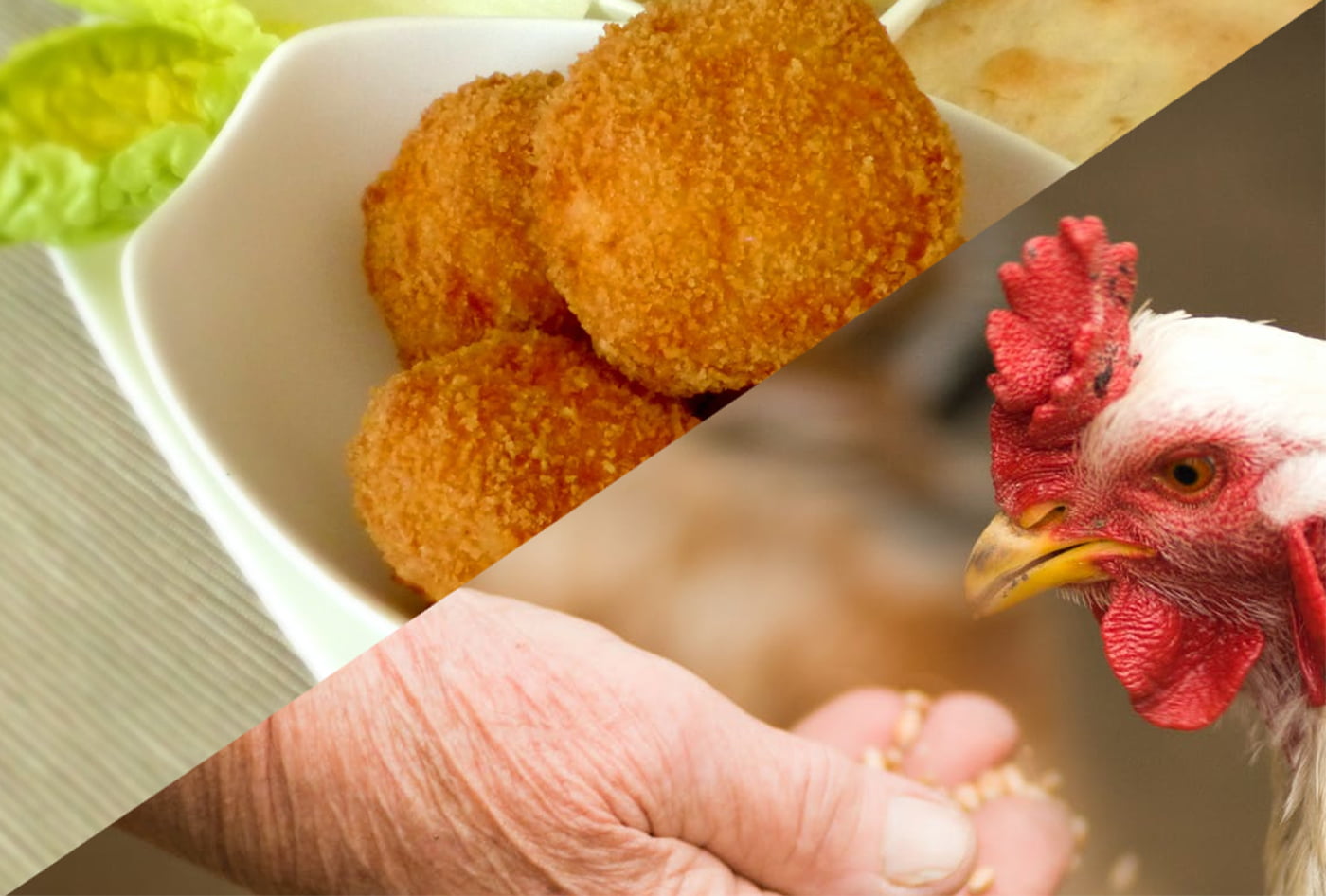In December of 2020, the Singapore Food Agency approved an application to manufacture and sell cell-cultured chicken by Eat Just, a US based startup known for developing plant-based egg substitutes. The cell-cultured chicken will eventually be produced under Eat Just’s GOOD Meat brand and will go on sale to foodservice before it is available at retail. The company says that no chickens were killed to obtain the cell line used to produce its cultured meat.
Making the chicken meat starts with culturing cells from a live chicken. The term cell culture simply refers to the removal of cells from an animal and their subsequent growth in a favorable artificial environment. After the cells are cultured, they are transferred into a bioreactor, fed with a proprietary mix of proteins, amino acids, minerals, sugars, salts and other nutrients and then harvested after they achieve enough density. It appears that the initial products will be nuggets and later they hope to introduce fillets.
Singapore is the first country to approve the manufacture and sale of cell-cultured meat which is sometimes called “cultured” or “lab-grown” meat. It remains to be seen whether this is the birth of a global transition to a new, sustainable food supply or if it’s a novelty trend. It’s important to note, however, that cell-based meats are closer to real meat than the plant-based products (from companies like Beyond Meat and Impossible Foods) that have become popular in recent years.
Will it sell?
These alternative meat products, along with indoor micro-farming, have the potential to change agri-business on a global scale. Lab-grown meat doesn’t require grazing land, tons of feed or killing livestock. The meat is grown by selecting animal cells which are placed on a biological scaffold to grow into the right shape and structure in a bioreactor that turbocharges cell growth. But it’s expensive to create the meat as it requires more industrial energy than do livestock to produce equivalent quantities of meat. Plus the cost of the final product will be much more than slaughtered meat which may relegate it to a niche market. Proponents of this technology claim that costs will fall as the technology matures.
Further Information

